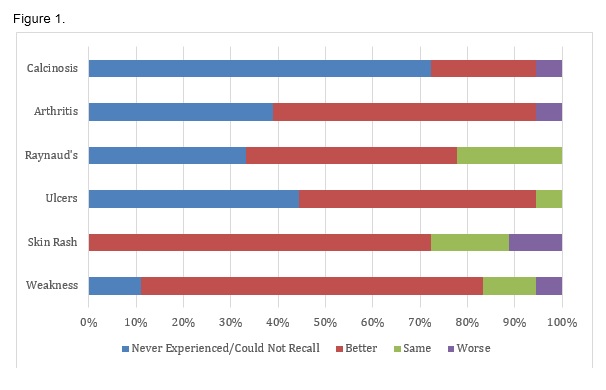Session Information
Session Type: ACR Poster Session C
Session Time: 9:00AM-11:00AM
Background/Purpose: The effect of pregnancy on Dermatomyositis (DM) disease activity and on maternal and fetal outcomes in patients with DM is unclear. Study objective is to evaluate disease activity and pregnancy outcomes complicated by maternal dermatomyositis.
Methods: A total of 10 patients with 21 pregnancies from a cohort of 438 DM patients of child-bearing potential, diagnosed between 2006 and 2015 from two centers, were eligible for interview with a specific questionnaire regarding pregnancy and fetal outcomes.
Results:
Conclusion: Pregnancy does not appear to carry a worse prognosis for DM patients and all but one of our patients experienced improvement in clinical symptoms during pregnancy.
To cite this abstract in AMA style:
Miller G, Moore E, Valenzuela A, Chung L, Werth VP. Dermatomyositis and Pregnancy: Assessment of Disease Activity and Pregnancy Outcomes Complicated By Maternal Dermatomyositis [abstract]. Arthritis Rheumatol. 2016; 68 (suppl 10). https://acrabstracts.org/abstract/dermatomyositis-and-pregnancy-assessment-of-disease-activity-and-pregnancy-outcomes-complicated-by-maternal-dermatomyositis/. Accessed .« Back to 2016 ACR/ARHP Annual Meeting
ACR Meeting Abstracts - https://acrabstracts.org/abstract/dermatomyositis-and-pregnancy-assessment-of-disease-activity-and-pregnancy-outcomes-complicated-by-maternal-dermatomyositis/

